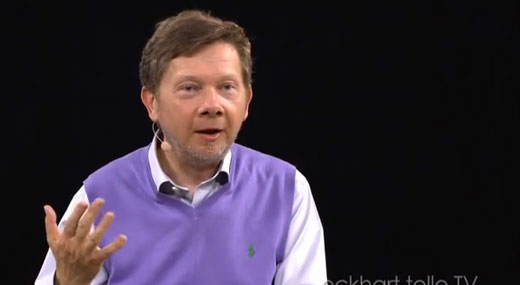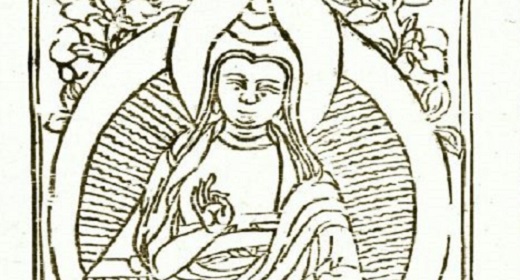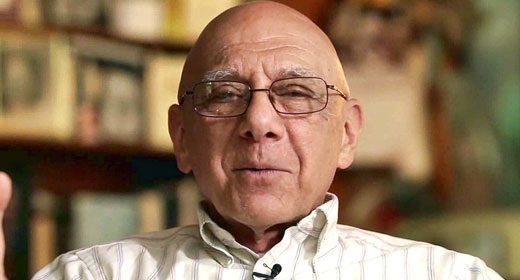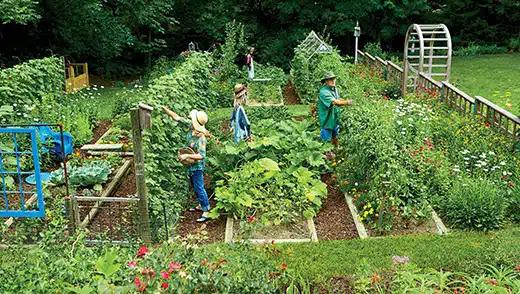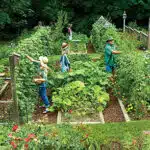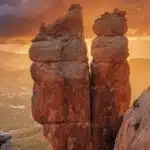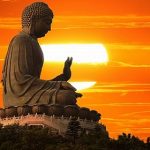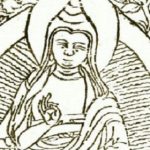by Ralph Metzner: Each of us, as a human soul, incarnates by choice with a purpose, an intention or vision for this life – what we came here to do and to be…
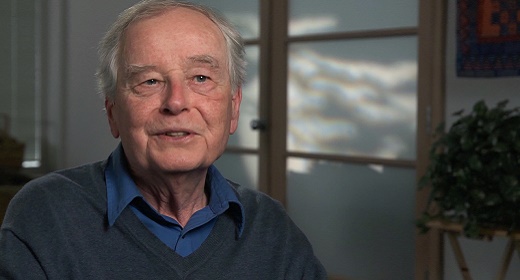
The ancient Zen koan – what was your original face before you were born ?– provokes us into asking about and tuning in to that vision. The soul chooses one or more of six great archetypal pathways in society, in which to express its talents and realize its vision: Healer/Peacemaker, Explorer/Scientist, Warrior/Guardian, Artist/Musician, Teacher/Communicator , and Builder/Organizer. In our heart and mind we carry an intuitive sense of this vision during the formative years of childhood and youth. We may have glimpses or dreams, messages from Spirit, as well as contacts with teachers and role models, that inspire us on finding our way, our unique destiny.
In traditional societies, the role you were to play in society was predetermined by the family you were born in and therefore could not be changed. In ancient India, for example, the principle of dharma meant that you were born into one of four basic castes: the warrior/ruler, the priest/teacher, the merchant/trader or the laborer/servant. In medieval times in Japan, four walks of life were recognized – the ways of the knight, the farmer, the artisan and the merchant. In medieval Europe there was a similar division into the four orders of knights/nobles, peasant/serfs, priest/monks and merchant/traders. Whereas the land-owning aristocracy and land-working peasantry/slaves were totally locked into their roles by family heredity, the religious orders and merchant guilds afforded somewhat more freedom of choice and mobility.
The abolition of hereditary aristocracies and colonialist serfdom/slavery through revolutionary wars of independence created socio-economic space for burgeoning middle classes with increasing gender equality and differentiated professions reflective of individual interests and talents. These developments in the political realm, initiated in North America in the late 18th century spread over the next two to three hundred years to Europe, Russia and eventually to all parts of the world, accompanied by blood-soaked spasms of war and violence that killed millions.
During the same time period, the industrial revolutions re-ordered modern societies, with exponentially increasing populations, into the two broad socio-economic classes, as described by Karl Marx: those who make products – the wage-working proletariat, and those who own the means of production – the capitalist bourgeoisie. Both the political liberation wars and the socio-economic class struggles continue world-wide to this day, with varying degrees of open violence, as entrenched dominator states and class systems of oppression resist liberation movements.
In the modern world, although equal opportunity and choice are afforded to all in theory and in law, one’s birth into one or the other socio-economic class to a large extent still determines or predisposes one’s choice of profession. As Marx envisioned and predicted, continuing class struggle is inevitable and necessary to break down the patterns of oppression, domination and prejudice that restrict the freedom of opportunity for each individual to unfold their creative genius.
Nevertheless, the core essential value of the hereditary connection, from the most ancient times to the present, is the guidance, education and assistance that parents are able to provide for their children. For most of us, a key theme during our formative years was and is to work out to what extent we are “following in the footsteps” of one or both parents and to what extent we are finding and following our own unique path. Similarly, when we are in the middle adult phase of lives, helping to guide and prepare our offspring for their role and work in society are central concerns – sometimes to the extent of obsession and conflict, particularly when matters of inherited wealth are involved.
In the officially accepted Western worldview, which does not recognize the existence of soul and Spirit, only genetics and early familial environment are the key determinants of personality development. Ancient traditions, particularly Eastern, that have preserved the truth of reincarnation, teach that the incarnating soul (not, of course, the personality) chooses to be born, by agreement and in communion with the parental souls.
The parents provide the genetic matrix and the original home – for the soul to grow the personality which will be the vehicle or vessel in the time and place of its existence on Earth. Of course, as a proponent of radical or first-person empiricism, I cannot know if it is always true, for all persons, that the soul chooses its incarnation and birth. My personal experiences and the accounts of other observers have led me to the conclusions I am presenting.
In choosing a family, the soul connects with two genetic lineages, each with its strengths and weaknesses, its traditions, values and capabilities. In choosing a community and society and a particular time and place to be born, we enter into the matrix of forces and conditions that provide the learning ground for our present incarnation. The ancient divinatory art of astrology uses the arrangement of the planets in our solar system at the time of our birth, and their position in relation to the place of our birth, i.e. what planets were “rising” or “culminating,” as symbolic indicators of our life’s path and learning challenges.
In the Tibetan Book of the Dead, an esoteric Buddhist text dealing with death, the after-life and rebirth, there are extensive passages describing the interlifebardo states in which the soul is dealing with the karmic tendencies drawing it into a new incarnation. According to these teachings, the degree of conscious intention we bring to this process is crucial in creating the preconditions for a truly human life – a life that affords the “precious opportunity” for liberation and enlightenment. The bardo-travelling soul is urged to slow down and resist the unconscious pull of the winds of karma and instead choose wisely and carefully a new family in which to be born.
It is always a function of continuing mindfulness that we are able to choose the kind of life we want to have, regardless whether we are in the realm of ordinary life or in the after-death and pre-birth realms. In everyday waking life, we are always either consciously choosing the next thought and word and deed, or sleep-walking along preconditioned habits of mind and body. The making of choices, moment to moment in our lives, constitute our character. An ancient saying, said to be from the Talmud, spells out the sequence of steps:our thoughts become words – our words become deeds – our deeds become habits – our habits become character- and our character is our destiny.
Karma, Fate and Destiny
In making the choice to incarnate, the soul chooses the threads of fate, the karma from other lifetimes, and the genetic threads of ancestry and family to weave together at the very beginnings of our life path. The default determinants of the conditions of our life are given by karma, the consequences of our past thoughts and actions, both from past lives and from our present life. We carry the karma of our past lives into the present life, as tendencies or ‘seeds’ – and it is our life-task and our opportunity to nourish those seed-tendencies we want to grow and develop, and not to nourish those we want to outgrow and leave behind.
In the Western philosophical traditions karma corresponds to fate (from the Latin fata ‘what has been decreed’) and to lot, the allotment of gifts and debts we carry with us from the beginning. Karma and fate are the unavoidable, fixed pre-conditions of our existence, the cards we have been dealt in this round of the game of human life on planet Earth.
In the Greek myth of the three moirae, sisters of time and of fate, Clotho (whose name relates to ‘cloth’ and ‘clothes’) is the one who spins the genetic double-helix thread of each life into its unique pattern and texture before we are born. The Romans called her Nona (the ‘ninth’) and invoked her name especially in the ninth month of pregnancy, just before birth. Lachesis is the one who ‘dispenses the lots’, or casts the die, or deals the cards, or lays out the runes, and thus determines the time-space conditions into which the new life is to be born.
In the Norse traditions of the three norns, fate is the realm of the one calledSkjuld, whose name relates to the German word for ‘guilt’ (Schuld) as well as ‘debt’ (Schulden). Guilt is the subjective feeling of owing a debt, the nagging inner voice that motivates us to repay a debt – at which point the voice can stop. When we become aware of having inflicted an injury, whether of word or deed or neglect, the feeling of guilt motivates us to make amends, to apologize and to repair the damaged relation. Thus it is the social function of guilt, not to self-inflict punishment or retribution, but to rebalance and repair our interpersonal relations. In our meditations and divination we can connect with the norn Skjuld in order to ask for deeper recognition of our unpaid karmic indebtedness – at the level of the individual, the community or the society.
Fate and karma connect us to the past – the unavoidable consequences of our genetic patterning and of our actions in this and previous lives. Destiny, on the other hand, which corresponds more closely to the traditional Indian notion ofdharma, is future-oriented and open-ended: it is the purpose and destination of our life, what we choose to be and to do with the gifts and talents we have been allotted, how we chose to play out the roles we have been given in the games of human society. I wrote about the paradoxical relationship between the concepts of fate and destiny in The Unfolding Self:
We fulfill our destiny by exercising our free will. But until our will is, in fact, freed from the fateful binding consequences of our past karmic actions and tendencies, we cannot really exercise that freedom. We have free will in theory, potentially, but not in practice or actuality – until we are liberated. When, through the processes and practices of transformation, we no longer experience ourselves as victims of our fate, we can become masters of our destiny (p. 73).
In the Norse tradition, destiny is the realm of the norn called Urd, whose name refers to the invisible web of potential connections and evolving forces weaving through our lives. The Norse word urd relates to the Anglo-Saxonwyrd or weird, the strange twists and turns of fate and destiny that wizards and witches (the “weird sisters” of Shakespeare’s Macbeth) could tune in to discern what was hidden and anticipate the unfolding lines of our probable and possible futures.
Each of us is born of a certain gender, with a genetically given psychophysical constitution, the traits and talents, weaknesses and challenges of our particular genetic genius. When we are born, our souls have chosen to be born within the particular social and historical condition of our family of origin. These are matters of fate, our lot in life, the starting point of our present incarnation. What we make of our gifts and talents, how we respond to the obstacles and challenges of our fated origin – these are the open-ended outlines of our potential destiny.
We may reflect on the fact that the word talent – the inherited, inborn gifts of creative expression – is derived from the word talenton, which was a form of money currency in the Graeco-Roman world. You might say that if you develop or invest in a natural talent to the point where people will pay you to exercise it – you’re a professional. Those who are amateurs develop and practice their talents for the sheer love of the game. On the other hand, we all know of gifted people who waste their talents and fail to develop their potential genius. Having talent, like having money, is no guarantee of success or of happiness.
This theme is illustrated in the biblical parable of the talents (Matthew 25, 14-30). In this story Jesus speaks of a man with three servants: one is given five talents, goes and invests them to make five more – he is rewarded with more responsibility when the Master returns. Another is given two talents, he invests them and makes two more – he too is rewarded when the Master returns. The third is given one talent, which he hides and hoards, because he is afraid of losing it – and he complains that the Master is “a hard man, who reaps what he did not sow.” We are told in the story that the Master rejected this third servant, because he hoarded his talent and complained over his hard fate, his difficult lot in life – rather than using and developing whatever allotted talent he had.
Connecting with the Ancestors
In my book The Life Cycle of the Human Soul, I described the divinations, with or without entheogenic amplification, through which one can tune into, and even at times perceive, a kind of cluster of ancestral souls whom we recognize as being our deceased parents and ancestors – some of whom we may never have known in person in this life. Using such a process, which one can think of as a kind of reflective remembering, we can tune in to and acknowledge with gratitude the qualities which were genetically transferred from the parents at the time of conception and also those transmitted from our parents in the childhood years. The recognition of ancestral connections can also occur spontaneously in dreams. For example, I never personally knew my father’s father, who had started the family publishing business, since he died before I was born. Late in life, I dreamed of my grandfather for the first time. I saw him standing among a group of others, looking formal but regarding me in a manner that expressed friendly acknowledgement of our connection. It was as if he was still engaged with or interested in the family business, ninety years after his physical demise.
After tuning in to, and acknowledging with gratitude, the traits and qualities genetically and developmentally absorbed from one’s parents, from the time of conception on through the formative years, there are deeper questions one can ask that can bring us more explicitly to the level of the incarnating soul and its purpose. We can ask the divinatory question – why did my soul choose this family to be born into – this mother, this father, these circumstances?
The answers we receive to such reflective questioning can often bring surprisingly enlarged and deepened understanding, self-acceptance and compassion for others. Some may find that the soul’s choice of parents reflects a working out of some karmic entanglement or indebtedness from another existence. For example, a woman may find that she and her mother were rival lovers of the same man in a past life – the man who is the father of one and the husband of the other in this life. Seeing such connections can change the feeling of being burdened by a difficult fate, and circumstances which one did not choose, to an acceptance of lessons to be learned in a situation we did choose. It’s as if souls are playing out some of the infinite possible variations of a cosmic learning game.
Often, the soul’s choice of birth family seems to be clearly related to the anticipated life path and purpose. Inborn inclination and parental example in childhood may converge to guide the child of a physician into medicine or the child of a soldier into the military. Someone born into a family of musicians may turn out be one whose life is dedicated to music – clearly the soul had chosen an early environment in which its innate talents would be recognized and nurtured.
Although the soul may intentionally choose the family, the actual time-space conditions of its earthly birth may or may not support the realization of its life-purpose. The film Mozart’s Sister tells the poignant story of Wolfgang’s older sister, who although also musically gifted, was reluctantly blocked from developing her talents by her concerned parents, in recognition of the realities of the 18th century European society, in which only marriage and motherhood were the pathways for a woman to survive.
Recognition of a soul’s life purpose sometimes emerges from a person’s growing awareness of the parents’ disparate or conflicting ethnicity, religion, class, nationality or culture. This was true for me, with a German father and British mother, when I came to recognize that my life-long almost obsessive interest in resolving international conflicts and differences was undoubtedly shaped by my childhood experience of the war between the nations to which my parents belonged. I once heard a woman physician relate how her peace activism was based on her history of growing up the child of an American Jewish mother and an Arabic Muslim father. It’s the story of Romeo and Julietand countless others in world literature and film, where a couple decide to ‘make love, not war’ – building bridges of love across chasms of hatred and misunderstanding. The offspring of such unions may very well find that the reconciling of such differences is a core aspect of their life’s purpose.
Our genetic ancestors, when alive or in the spirit world, individually or in a council, function as our guides and supporters in issues arising out of family entanglements and survival in this present world and lifetime. The council of elders and teachers, and individuals from it, function as spiritual guides for the Immortal Soul in working out its karmic lessons and evolutionary purposes over many incarnations, where we may have lived in totally different familial and social conditions. The pauper may have been a prince and the princess may have been a prostitute.
Transitions, initiations and disciplines
For each of the six pathways, the work we do in society has its characteristic disciplines that are to be learned during the formative years. We must acquire the knowledge and practice the skills and techniques of our profession in order to become its practitioners. In doing so we connect with the lineages and traditions of those who have walked these paths before us. We pass through a series of examinations and initiations to finally become colleagues and collaborators, as well as potential competitors, in our professional field.
The great mythologist Joseph Campbell, when asked how one chooses one’s work in the world, used to say you should “follow your bliss” – the feeling you have when your work is in alignment with the soul’s vision. This begs the question of how you find your bliss in order to follow it. This is the challenge and task of our formative years and at other transitional times in our lives.
There may periods of confusion and distress, decidedly not blissful, when you can’t identify the paths or fields of action occupying your time or identify with any of the professions or paths you see around you. Such periods may be times of retreat and recovery – times to find a new vision for your life, a new path or direction.
Some of these transitions may involve a more or less traumatic re-organizing of our entire life-world, uprooting our assumptions of who we are and what the world is. A future shaman, for example, may find themselves going through a ‘shamanic sickness’ with uncertain outcome – but during which they learn to connect with the spiritual helpers and allies that make their healing work in the world possible. In some indigenous societies, such traumatic initiations were deliberately programmed into the adolescent transition rites, to emphasize the discontinuity between childhood and adulthood.
On the other hand, some individuals may find their path in life without traumatic initiations or disruptions, in a more or less orderly fashion, acquiring the necessary knowledge and discipline for their chosen profession. In this book we will discuss, for each of the six pathways, what are the characteristic disciplines one must acquire in the formative years and the initiatory transitions that may be involved when entering one’s chosen path or finding a new one.
On each path, in each field of action, one may be a leader, or play supporting roles. One may be the chief executive of a corporation, or a worker in it; the head surgeon of a hospital or an attendant nurse. Although such differences in social status and professional rank can have profound implications for a person’s remuneration and hence their self-esteem, their ability to support their family and the role they play in their community – from the point of view of their spiritual development, these are not the most important issues.
It’s like in the parable of the talents – we are each given some gifts and some opportunities to develop them. Happiness and the fulfillment of our destiny are a function of how we respond to the challenges of fate and how we deal with the talent cards we have been dealt in the great game of human life on Earth.
The Roles of Women in Society
As is well known, there are special challenges faced by women in finding and following their chosen life-path. One of the hallmarks of the evolution of modern societies is the increasing equalization and liberalization of the social status and therefore life-path opportunities for women. In the global political scene, the struggles for political freedoms, economic opportunities and access to education swirl around the issue of equalizing the socio-economic status of women. Even in the 20th/21st century Western world however, where this social evolution has progressed the furthest, we can still recognize how profound the obstacles to professional advancement have been for women, especially in the older generations.
This is why, in this you will be asked to reflect not only on your own chosen life-path, but also on the life-path of your father and mother. A married woman with children may have given up the dream of her life-work to play a supportive role to her husband’s path and be a mother to their children. Some may focus on marriage and motherhood for twenty years or so and then go on to, or return to, their chosen and original pathway. Some have, heroically and improbably, found the energy and the social support to practice both their mothering role and their creative-spiritual pathway.
Wholeness and Mastery
Each of the six pathways is not only a career or profession, our work in the world, each is also, at a deeper level, a pathway of spiritual development that the soul has chosen. Some may find they have to differentiate their work in the world, the job they do to support their family, from their spiritual growth practices and beliefs. For many, perhaps most of us, finding or creating work that provides both the material support for our lives and creative-spiritual nourishment for the soul’s growth remains an ongoing challenge.
It has been said that all the pathways of the human soul are variants of the ‘earth-path of service’ – service to others, to life and to the world. The healer, the explorer, the warrior, the artist, the teacher, the organizer – all are contributing to others while exercising their own special skills and talents. Some find fulfillment in devoting themselves with single-mindedness to one particular path and practice. Others feel incomplete or imbalanced if their interest and time is invested too exclusively, and want to be involved in several fields. On the other hand, such imbalance, if extreme, may lead to being a ‘jack of all trades and a master of none.’
G.I. Gurdjieff, who has always been one of my main teachers, used to say you should develop one pathway of skills to the point of mastery, but then also ‘try your hand’ at one or two others – for overall balance and wholeness. In working with the six pathways we are studying in this course, I have found that most people identify with more than one path, and would say they would feel incomplete or imbalanced if they only pursued one of them.
There need be no value judgment placed on whether a person chooses to concentrate on one or several. Integrating the different interests and values of our life, both those we know and those more hidden, unconscious and undeveloped, into a functional wholeness is what C.G. Jung called the process of ‘individuation’. The guidance that emerges from considering the relative strengths of your talents and interests in the different pathways is that you develop your strongest talents for mastery in your field, and you may develop your lesser interests for more wholeness and balance.
This is the reason why, as we go through this course, you will be asked to assess to what degree you are involved in each of the six pathways. The simplest way to do that is to estimate how much time and energy you devote to the activities of that path. And for each pathway you can ask yourself how your relationship to that path has changed over the course of your life. Assessing other significant members of your family and community in terms of their chosen pathway is also a way to get a deeper appreciation of their talents and challenges.
Ralph Metzner, Ph.D., received his undergraduate degree at Oxford University and his doctorate in clinical psychology at Harvard University, where he was also the recipient of an NIMH Post-doctoral Fellowship in psychopharmacology at the Harvard Medical School. He collaborated with Timothy Leary and Richard Alpert in the studies of psychedelic drugs and co-authored The Psychedelic Experience. He is a psychotherapist and Professor Emeritus at the California Institute of Integral Studies, where he taught for 30 years.

